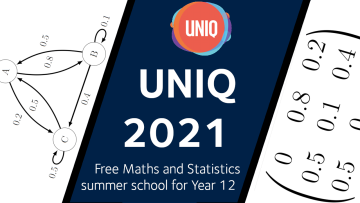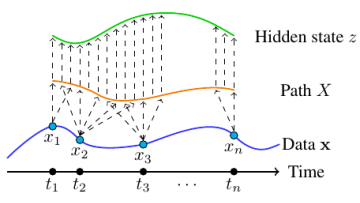16:00
16:00
Linear-Quadratic Stochastic Differential Games on Directed Chain Networks
Abstract
We present linear-quadratic stochastic differential games on directed chains inspired by the directed chain stochastic differential equations introduced by Detering, Fouque, and Ichiba in a previous work. We solve explicitly for Nash equilibria with a finite number of players and we study more general finite-player games with a mixture of both directed chain interaction and mean field interaction. We investigate and compare the corresponding games in the limit when the number of players tends to infinity.
The limit is characterized by Catalan functions and the dynamics under equilibrium is an infinite-dimensional Gaussian process described by a Catalan Markov chain, with or without the presence of mean field interaction.
Joint work with Yichen Feng and Tomoyuki Ichiba.
14:00
Algebraic multigrid methods for GPUs
Abstract
Computational science is facing several major challenges with rapidly changing highly complex heterogeneous computer architectures. To meet these challenges and yield fast and efficient performance, solvers need to be easily portable. Algebraic multigrid (AMG) methods have great potential to achieve good performance, since they have shown excellent numerical scalability for a variety of problems. However, their implementation on emerging computer architectures, which favor structure, presents new challenges. To face these difficulties, we have considered modularization of AMG, that is breaking AMG components into smaller kernels to improve portability as well as the development of new algorithms to replace components that are not suitable for GPUs. Another way to achieve performance on accelerators is to increase structure in algorithms. This talk will discuss new algorithmic developments, including a new class of interpolation operators that consists of simple matrix operations for unstructured AMG and efforts to develop a semi-structured AMG method.
A link for this talk will be sent to our mailing list a day or two in advance. If you are not on the list and wish to be sent a link, please contact @email.
14:00
The bubble transform and the de Rham complex
Abstract
The bubble transform was a concept introduced by Richard Falk and me in a paper published in The Foundations of Computational Mathematics in 2016. From a simplicial mesh of a bounded domain in $R^n$ we constructed a map which decomposes scalar valued functions into a sum of local bubbles supported on appropriate macroelements.The construction is done without reference to any finite element space, but has the property that the standard continuous piecewise polynomial spaces are invariant. Furthermore, the transform is bounded in $L^2$ and $H^1$, and as a consequence we obtained a new tool for the understanding of finite element spaces of arbitrary polynomial order. The purpose of this talk is to review the previous results, and to discuss how to generalize the construction to differential forms such that the corresponding properties hold. In particular, the generalized transform will be defined such that it commutes with the exterior derivative.
A link for this talk will be sent to our mailing list a day or two in advance. If you are not on the list and wish to be sent a link, please contact @email.
15:30
A Topological Turán Problem
Part of the Oxford Discrete Maths and Probability Seminar, held via Zoom. Please see the seminar website for details.
Abstract
The classical Turán problem asks: given a graph $H$, how many edges can an $4n$-vertex graph have while containing no isomorphic copy of $H$? By viewing $(k+1)$-uniform hypergraphs as $k$-dimensional simplicial complexes, we can ask a topological version (first posed by Nati Linial): given a $k$-dimensional simplicial complex $S$, how many facets can an $n$-vertex $k$-dimensional simplicial complex have while containing no homeomorphic copy of $S$? Until recently, little was known for $k > 2$. In this talk, we give an answer for general $k$, by way of dependent random choice and the combinatorial notion of a trace-bounded hypergraph. Joint work with Jason Long and Bhargav Narayanan.
Oxford Mathematician Patrick Kidger writes about combining the mathematics of differential equations with the machine learning of neural networks to produce cutting-edge models for time series.
Cluster algebras and categorification
Abstract
Introduced by Fomin and Zelevinsky in 2002, cluster algebras have become ubiquitous in algebra, combinatorics and geometry. In this talk, I'll introduce the notion of a cluster algebra and present the approach of Kang-Kashiwara-Kim-Oh to categorify a large class of them arising from quantum groups. Time allowing, I will explain some recent developments related to the coherent Satake category.



